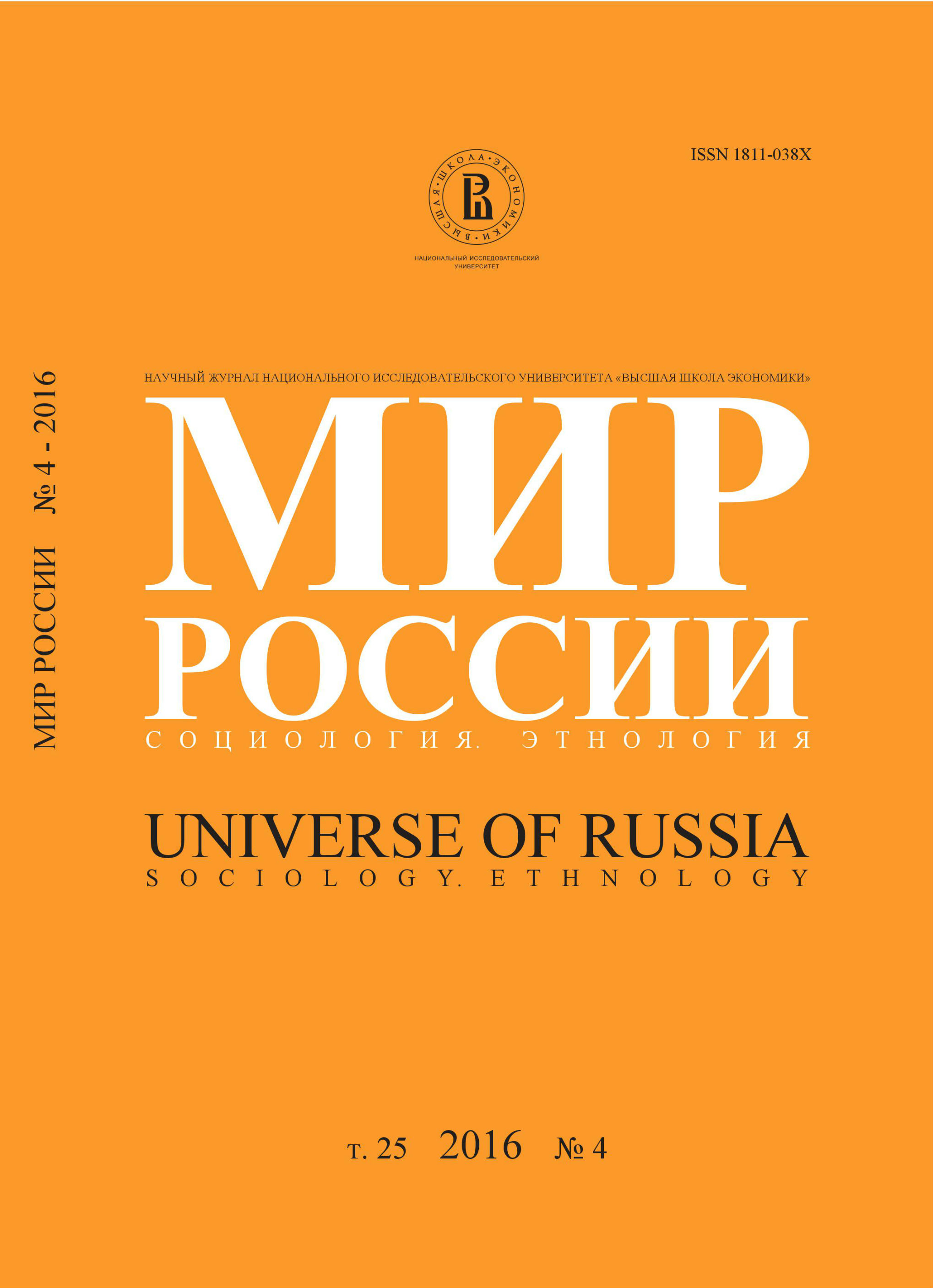The Heritage of Soviet Paternalism in the Belarusian Countryside: The Moralization and Folklorization of the Social World
Abstract
Ronan Hervouet — Associate Professor, Faculty of Sociology, University of Bordeaux; Researcher, Centre Emile Durkheim. Address: 3, Place de la Victoire, Bordeaux, 33000, France. E-mail: ronan.hervouet@u-bordeaux.fr
Alexander Kurilo — PhD in History, Co-director, Franco-Belarusian Center of European Studies, Center of International Studies. Address: 11a, Internatsional’naya St., Minsk, 220030, Belarus. E-mail: avkurilo@gmail.com
In order to improve results in the agricultural sector, the Belarusian authorities have adopted different types of policies—which can be qualified as "paternalistic"—aiming to reform the behaviours of individuals. This article documents the way paternalist practices targeting Belarusian rural areas are not only a heritage from the Soviet past but also introduce forms of innovation, folklorization and nationalization of this Soviet legacy. The article is based on ethnographic evidence (observations and around forty interviews) gathered in rural Belarusian areas during visits undertaken over two periods (2006–2009 and 2012–2013) and on statistics and news articles. Recognising exemplary workers, raising the moral standards of professional and social life, and folklorizing the rural world can be seen at local level. An ethnographic approach in the Belarusian countryside allowed the authors to draw a picture of various meaningful practices: the promotion of tradition, a civilizing guardianship, the disciplining of the body, reputation, exemplariness and penalties. The paternalist practices implemented on the kolkhozes (collective farms) are not only a continuation of Soviet-era conditions but have also introduced a number of innovations. The promotion of traditional rural culture and the theatrical appearances of Belarusian folklore, seen as manifesting skills and know-how from a long national history, are novelties. Still another type of innovation in rural paternalism was set up by religious leaders, in close collaboration with the local administration. Then the authors analyse the paternalism at a national level. They focus on the history, the organization and the functions of Dozhinki, the national agrarian festival developed under the President Lukashenko’s regime. These festivals derive their characteristics from three different modes of politics. First, they are used to modernize infrastructure and channel investment towards rural areas in difficulty. Next, they evidence a shift in the way power is staged and put on show by the authorities. Stress is laid on the regime’s roots in farming, displaying its successes in rural areas. Lukashenko has given them the dimensions of a full-blown national festival, one emblematic of the ideology of the newly-independent republic. Finally, Dozhinki are also a public, media- driven manifestation of paternalist practices encouraged by the regime. Awarding prizes to the best workers is a continuation of the awards of labour medals, certificates and other rewards from the Soviet period.






